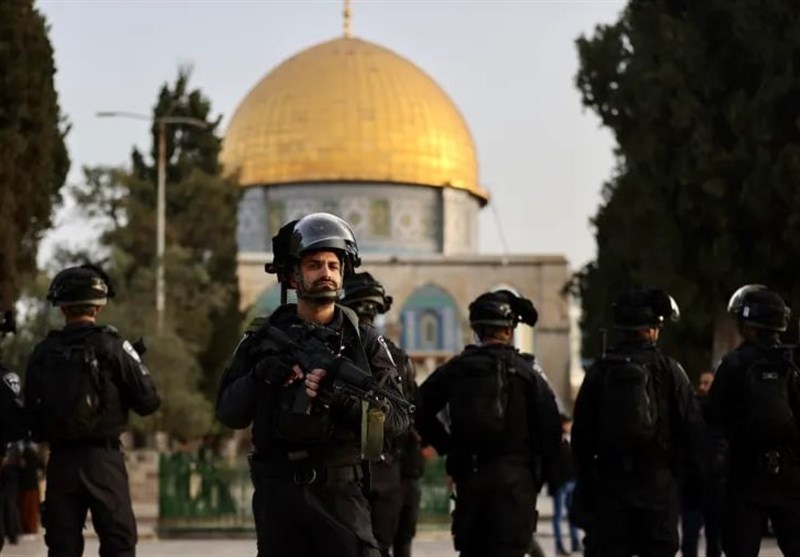Israel’s hardline Security Minister Itamar Ben-Gvir said if he had his way, he would build a synagogue at the Al-Aqsa Mosque in Jerusalem, so that Jews can also pray there.
The Al-Aqsa compound is Islam’s third holiest site and a symbol of Palestinian national identity, but it is also Judaism’s holiest place, revered as the site of the second temple destroyed by the Romans in 70 AD.
“If I could do anything I wanted, I would put an Israeli flag on the site,” Ben Gvir said in the interview.
Asked several times by the journalist if he would build a synagogue at the site if it were up to him, Ben Gvir finally replied: “Yes.”
Under the status quo maintained by Israeli authorities, Jews and other non-Muslims are allowed to visit the compound in Israeli-annexed east Jerusalem during specified hours, but they are not permitted to pray there or display religious symbols.
In recent years, the restrictions at the compound have been increasingly flouted by hardline religious nationalists like Ben Gvir, prompting sometimes violent reactions from Palestinians.
The Al-Aqsa Mosque compound is administered by Jordan, but access to the site itself is controlled by Israeli security forces.
Ben Gvir told Army Radio that Jews should be allowed to pray in the compound.
“Arabs can pray wherever they want, so Jews should be able to pray wherever they want,” he said, claiming that the “current policy allows Jews to pray at this site”.
Several Israeli officials condemned Ben Gvir after his latest comments, and a statement from Prime Minister Benjamin Netanyahu’s office said “there is no change” to the current policy.
“Challenging the status quo on the Temple Mount is a dangerous, unnecessary, and irresponsible act,” Defence Minister Yoav Gallant said on X.
“Ben Gvir’s actions endanger the national security of the State of Israel.”
Palestinian presidency spokesman Nabil Abu Rudeineh also condemned Ben Gvir, warning that “Al-Aqsa and the holy sites are a red line that we will not allow to be touched at all”.
Hamas, with whom Israel is locked in a bitter war in the Gaza Strip, said the minister’s comments were “dangerous” and called on Arab and Islamic countries “to take responsibility for protecting the holy sites”.
Earlier this month, Ben Gvir announced he had prayed at the compound, drawing widespread condemnation, including from several influential Israeli rabbis.
During a recent visit to the site, Ben Gvir filmed a video statement in which he reiterated his opposition to any ceasefire in the Gaza war. AFP


